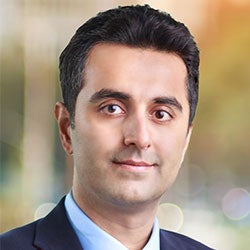If you look at the adoption levels of early years in Dubai, higher than the rest of the region, but significantly below where we see some of the other markets operate. And early years is a very important part of the education provision. There are about two twelve centres in Dubai that are just standalone and we think there's scope to add some of them. We did see some of them close through the pandemic.
Many of these operators are mom and pop operators. They weren't able to sustain the losses in enrollment. Of course, parents were very nervous about sending their children or even paying for holding a seat at an early years institution through COVID. At schools, people were more willing to do so.
Again, what Dubai has done really well on is that there's a range of offerings. You can go up from ten ks a year to seventy ks a year. So there's something to meet every parent's affordability. I think that's something that the KHD is committed to doing to make sure that there's always a lot of choice on offer, not only in K-twelve but in earlier standalone centres.
If you look at the long term trend, we've seen, the UAE nationals, growth has been around seven percent, expats accounting for about four percent. We saw the dip during that COVID period as you'd expect, but this is a largely expat market. But again, UAE nationals are about ten percent and they are growing. I think there is a demand and a parental preference amongst many parents for a standalone centre.
If you look at Dubai, there is a sort of move to premium overall and the highest level of capacity utilisation is in the premium segment. That's a trend we'll see in K12 as well.


